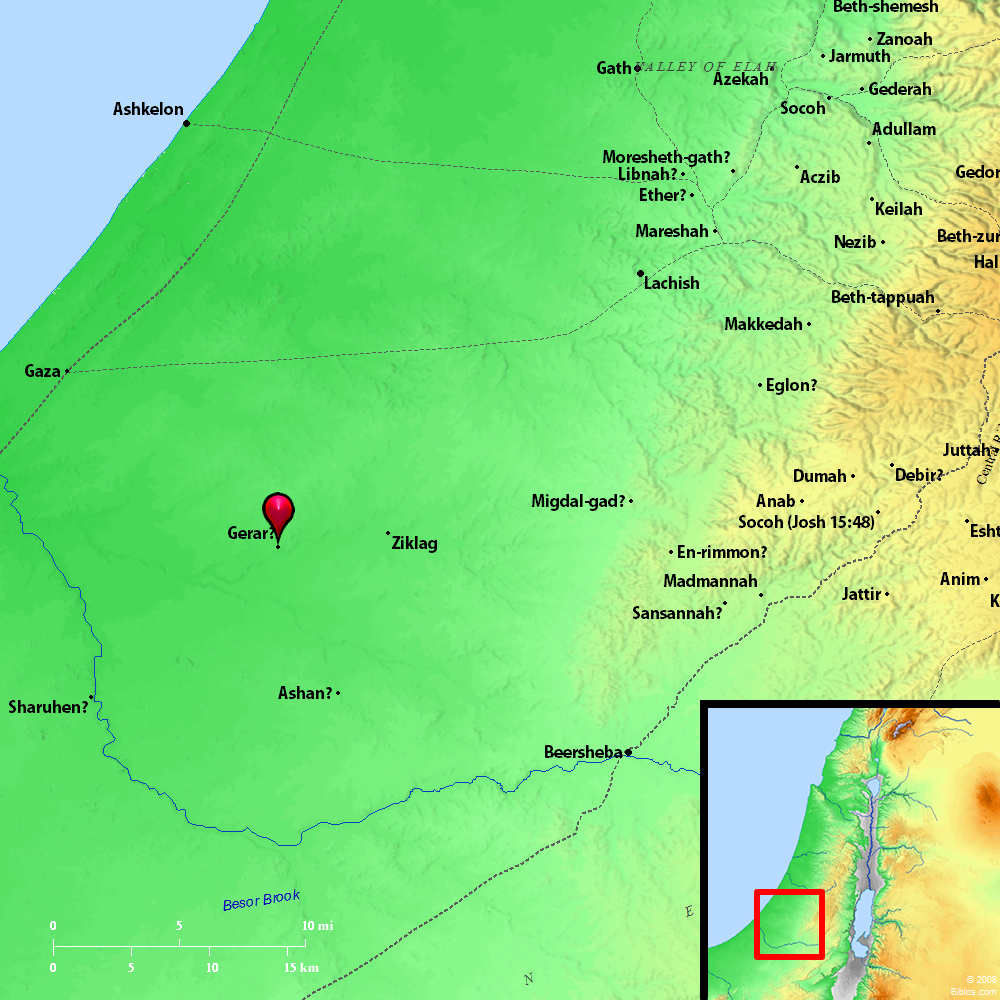Atlas  Valley of Gerar (Gerar) and surrounding region Maps Created using Biblemapper 3.0 Additional data from OpenBible.info You are free to use up to 50 Biblos coprighted maps (small or large) for your website or presentation. Please credit Biblos.com. Occurrences Genesis 26:17 Isaac departed from there, encamped in the valley of Gerar, and lived there.Encyclopedia GERARge'-rar (gerar, "circle," "region"; Gerara): A town in the Philistine plain South of Gaza (Genesis 10:19), where both Abraham and Isaac ' sojourned for a time, and where they came into contact with Abimelech, king of Gerar (Genesis 20 and 26, passim). The place has not been fully identified, but the site is probably in one of the branches of Wady Sheri`a, at a place called Um Jerrar, near the coast Southwest of Gaza and 9 miles from it (SWP, III, 389-90). The site answers fairly well to the statements of Eusebius and Jerome, Eusebius, Onomasticon, that it was 25 (Roman) miles South of Eleutheropolis (Beit Jibrin). It is actually 30 English miles, but distances were not very accurately determined in early times. Gerar was known in the first 5 centuries A.D., when it was the seat of a bishopric, and its bishop, Marcian, attended the Council of Chalcedon 451 A.D., It was also the seat of a monastery. |



